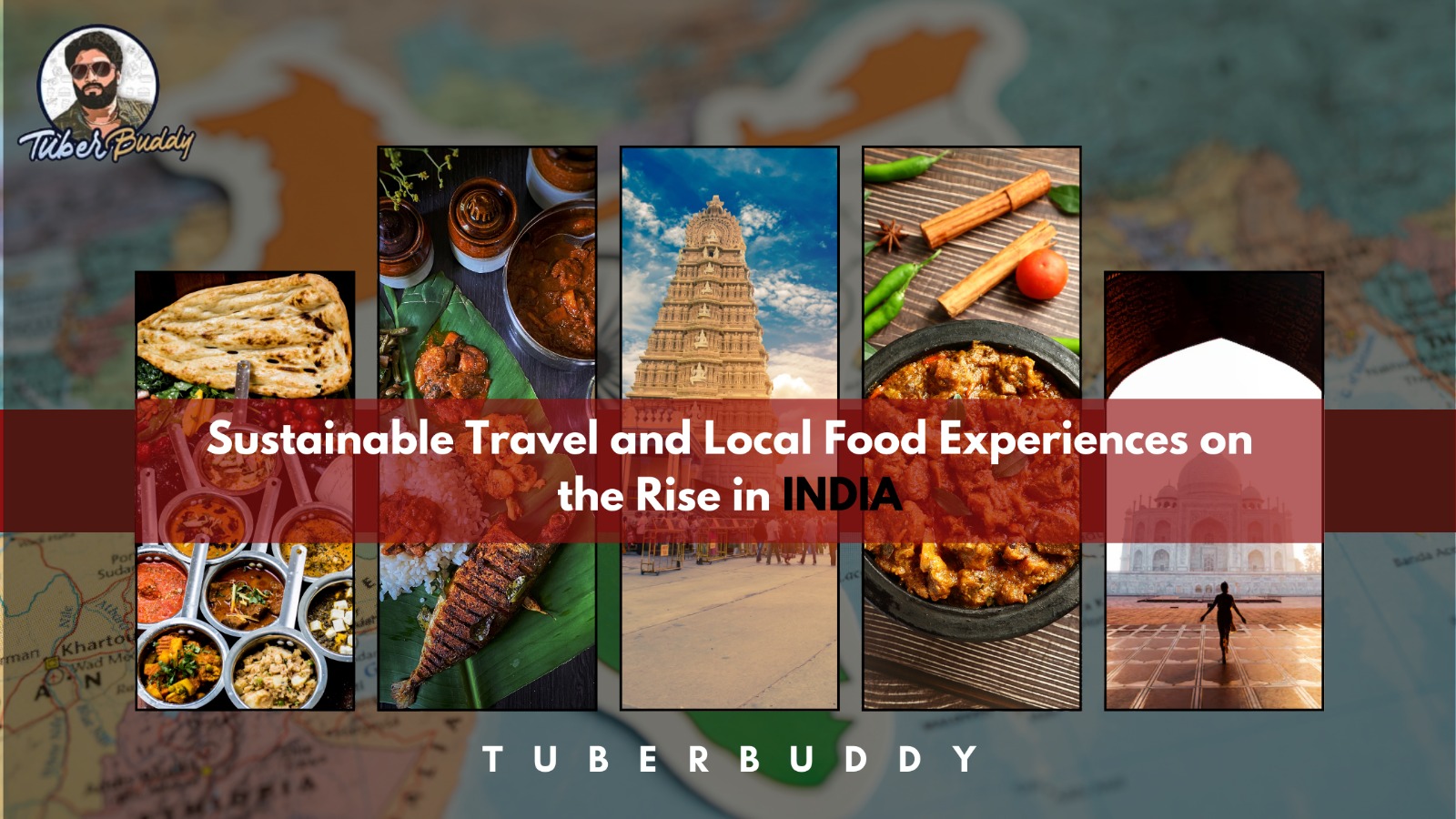Local Food Experience | Discover Authentic Flavors Around You

India, known for its rich cultural heritage, vibrant landscapes, and diverse culinary traditions, is witnessing a remarkable shift in how people approach travel and food. As global awareness of sustainability grows, both sustainable travel and local food experiences are gaining momentum in India. Travelers are now looking beyond traditional tourism, seeking immersive experiences that not only benefit them but also contribute to the environment and local communities. This trend is shaping the future of tourism and food culture in India, making it an exciting time for travelers, hoteliers, and local food producers alike.
The Rise of Sustainable Travel in India
Sustainable travel in India is no longer just a niche. With growing environmental concerns, more travelers are becoming conscious of their carbon footprint and the impact of mass tourism on the environment. This has led to the increasing popularity of eco-tourism, nature-based travel, and community-driven experiences that prioritize sustainability.
Sustainable travel can be defined as responsible travel that minimizes environmental impact and promotes the well-being of local communities. India, with its vast array of ecosystems—from the Himalayas to coastal regions and dense forests—offers abundant opportunities for eco-friendly travel.
Some notable trends in sustainable travel include:
- Eco-friendly Accommodations: Boutique eco-resorts and homestays are rising in popularity. These accommodations focus on green architecture, energy conservation, and waste reduction. By staying in eco-friendly hotels, travelers contribute to reducing the environmental impact while still enjoying comfort and luxury.
- Community-Based Tourism: Rural and tribal tourism initiatives are gaining attention. In states like Kerala, Meghalaya, and Rajasthan, tourists can now stay with local families, learn about their culture, and participate in everyday activities like farming, weaving, and pottery-making. This not only provides a unique experience but also helps generate income for local communities.
- Wildlife Conservation Tours: Safaris and guided tours that emphasize wildlife conservation are increasingly popular. Sanctuaries and reserves such as Kaziranga National Park, Ranthambore, and Sundarbans offer wildlife enthusiasts an opportunity to see India’s unique biodiversity while ensuring the protection of endangered species.
Sustainable travel is not only about minimizing harm but also about enriching travel experiences. By engaging in responsible tourism, travelers can have deeper cultural exchanges, support local economies, and actively contribute to the preservation of India’s natural beauty.
For more on travel trends in India, check out this blog: Travel Trends.
Exploring Local Food: A Sustainable Culinary Journey
Alongside sustainable travel, the demand for local food experiences is also on the rise in India. Visitors are showing greater interest in exploring the diverse culinary landscape of India through locally sourced, traditional, and seasonal food. This not only promotes sustainable farming but also helps preserve the country’s rich food heritage.
One of the key drivers behind this trend is the increasing awareness of food sustainability. Consumers are more conscious of where their food comes from, how it is produced, and its environmental footprint. As a result, farm-to-table dining, organic restaurants, and local food markets are becoming more popular, especially among travelers seeking an authentic experience.
Key factors driving the rise in local food experiences include:
- Farm-to-Table Dining: Many hotels, resorts, and restaurants in India are now embracing the concept of sourcing ingredients directly from local farms. This not only ensures fresh and seasonal produce but also helps support local farmers. In regions like Goa, Uttarakhand, and Punjab, travelers can visit organic farms, learn about sustainable farming methods, and even participate in farm activities.
- Regional Cuisines: India’s diverse culinary traditions are a major attraction for food enthusiasts. From the spicy curries of South India to the rich gravies of North India, each region offers a distinct flavor profile. Travelers are increasingly interested in exploring regional cuisines by trying street food, attending food festivals, or taking cooking classes with local chefs. This growing interest in regional food helps preserve traditional recipes and techniques that may otherwise be lost.
- Healthy Eating and Traditional Recipes: With the rise of health-conscious eating habits, traditional Indian recipes made from locally sourced ingredients are gaining popularity. Many travelers are now seeking nutritious, healthy Indian meals that are not only delicious but also beneficial for their well-being. This shift toward healthy eating is encouraging local food producers and restaurants to incorporate more organic, whole, and plant-based ingredients into their offerings. For more details on Indian meals, check out Healthy Indian Meals.
The Role of Technology in Promoting Sustainable Travel and Food
Technology is playing a significant role in promoting sustainable travel and local food experiences in India. From mobile apps that help travelers find eco-friendly accommodations to platforms connecting tourists with local communities and culinary experiences, technology is enhancing the sustainability landscape.
- Travel Booking Platforms: Websites and apps are increasingly offering options for eco-conscious travelers, allowing them to book sustainable hotels, eco-tours, and community-based experiences with ease.
- Food Delivery Apps: Many food delivery platforms in India are now partnering with local farmers and organic producers to promote healthier, sustainable food options. This helps consumers make informed decisions while supporting the local economy.
Conclusion
The rise of sustainable travel and local food experiences in India reflects a broader global trend toward environmental consciousness and cultural preservation. With travelers becoming more mindful of their impact, both eco-friendly tourism and locally sourced food are set to reshape India’s travel and culinary landscape. Whether it’s exploring a hidden village in the mountains or savoring a traditional Indian meal made with fresh, local ingredients, these experiences offer a meaningful way to connect with India while contributing to its sustainable development.
For more information, read the recent blog on Nobel Prize 2024 Winners Announced: Names, Fields, and Prize Money Breakdown.
